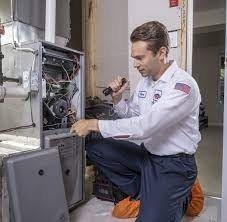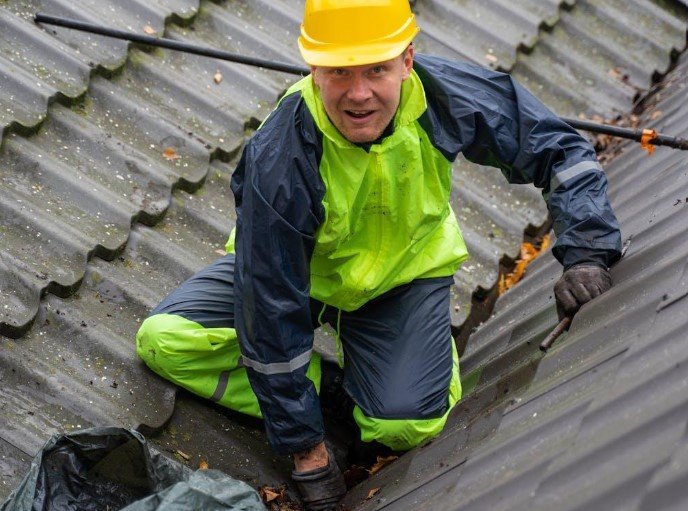American Home Water and Air: Are The Electric Furnaces Safe?

We asked American Home Water and Air, a reputed HVAC company, about whether electric furnaces are really safe. With their help, we’ve put together this article to give you a breakdown of electrical furnaces, their considerations, and their overall safety.
Table of Contents
Are Electric Furnaces Safe?
Yes, electric furnaces are considered safe to use, as long as they are installed and maintained properly. Unlike gas furnaces, electric furnaces don’t produce carbon monoxide, a poisonous gas, and don’t pose a risk of explosion. However, like any electrical appliance, electric furnaces can pose a risk of electrical shock or fire if they are not properly grounded or if there are issues with the wiring.
It’s important to have an electric furnace installed by a licensed professional and to have it inspected regularly to ensure that it is operating safely. If you notice any issues with your electric furnace, such as strange noises, a burning smell, or a loss of heat, it’s important to have it repaired as soon as possible to prevent potential safety hazards.
How Often Should I Have My Electric Furnace Serviced?
It’s recommended to have your electric furnace serviced at least once a year, ideally before the start of the heating season. Regular maintenance can help keep your furnace running efficiently, extend its lifespan, and ensure that it’s operating safely. Maintenance involves a technician performing furnace inspection, replacing or cleaning filters, the motor or blower, and addressing any issues as they come up. They may also inspect the ductwork and electrical connections to make sure that everything is in good working order.
In addition to annual maintenance, it’s a good idea to have your furnace inspected if you notice any problems, such as a decrease in heating performance, strange noises, or a burning smell. These may be signs of a more serious issue that needs to be addressed as soon as possible to prevent further damage or potential safety hazards.
Overall, regular maintenance is important for the health and safety of your electric furnace and for your family.
What Does Electric Furnace Maintenance Include?
During your annual service, the HVAC technician will check your system to ensure everything is operating properly. Small adjustments will be made, and larger issues will be brought to your attention so that you can determine a course of action. Generally, electric furnace maintenance typically includes the following tasks:
- Cleaning the furnace cabinet: The technician will clean the exterior of the furnace to remove any dirt or debris that may have accumulated over time.
- Replacing air filters: The air filters should be replaced if they are dirty or clogged. Dirty filters can reduce furnace efficiency and cause the blower to work harder than it should.
- Lubricating moving parts: The technician ensures that all moving parts are properly lubricated, like the blower motor, which will guarantee smooth and quiet operations.
- Checking the blower and motor: The technician will inspect the blower and motor to make sure that they are functioning properly and that the belts and pulleys are in good condition.
- Checking electrical connections: The technician will inspect the electrical connections of the furnace to make sure that they are tight and that the furnace is properly grounded.
- Inspecting the ductwork: The technician will inspect the ductwork to make sure that it’s securely connected and free of any leaks or blockages.
- Checking the combustion chamber: If the electric furnace uses heating elements, the technician will inspect the combustion chamber to ensure that it’s free of any damage or buildup.
- Adjusting the thermostat: The technician may adjust the thermostat to ensure that it’s working properly and set to the correct temperature.
By performing these maintenance tasks, the technician can keep the electric furnace running efficiently and safely, and extend its lifespan. Regular maintenance is also a good opportunity to identify any potential problems with the furnace before they become more serious and costly to repair.
Signs Your Electric Furnace Isn’t Operating Properly
Even with proper maintenance, there may be times when your electric furnace experiences problems that must be addressed by a professional. It is always best to contact a professional who can locate and correct the problems before they become more significant issues that must be dealt with when it’s the least convenient.
Here are some signs that may indicate a problem with your electric furnace:
- Furnace not heating the home effectively: If the furnace is not producing enough heat, it could be due to a variety of issues, such as a clogged air filter, a malfunctioning blower, or a problem with the heating elements.
- Odd noises: If the furnace is making unusual noises, such as rattling, squealing, or banging, it may indicate a problem with the blower or motor, or a loose part that needs to be tightened or replaced.
- Furnace tripping the circuit breaker: If the furnace frequently trips the circuit breaker, it could be a sign of an electrical problem that needs to be addressed by a professional.
- Uneven heating: Hot and cold spots in various areas of your home may reflect an issue with the ductwork or a malfunctioning thermostat.
- Furnace not turning on: If the furnace is not turning on, it could be due to a problem with the thermostat, the electrical supply, or the furnace itself.
If you are experiencing any of these problems with your electric furnace, it’s best to have it inspected by a professional to determine the cause and make any necessary repairs. Ignoring these problems can lead to more serious and costly repairs, and can also increase the risk of safety hazards, such as electrical shock or fire.
With proper care, your electric furnace should operate efficiently and safely for years to come. As with most appliances, an ounce of prevention is worth a pound of cure. Quick repairs will not only save you from potential hazards, but they will also prevent headaches from unexpected failures and extend the life of your electric furnace.









